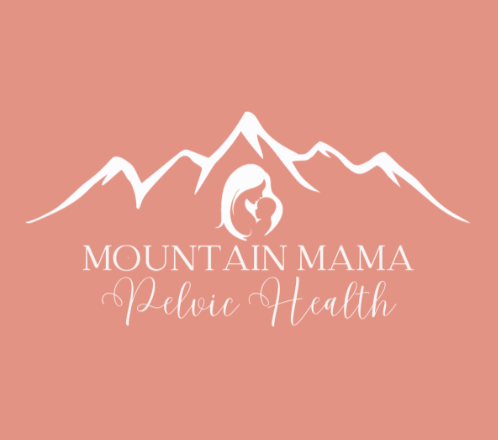Back to Basics -
Hello lovelies!
Here is your Power to the Pelvis Newsletter for June! It's summer season, and we get some gorgeous days with afternoon rainstorms to cool things off. This month we're going back to basics and educating on What Is the Pelvic Floor — and Why Should You Care?
* Tip of the Month:
Pelvic Floor Anatomy 101 + Why It Matters for Everyone, Not Just Postpartum Moms
When you hear the words “pelvic floor,” do you imagine doing hundreds of Kegels? You’re not alone — but the pelvic floor plays a critical role in core strength, bladder control, and everyday movement for everyone, regardless of age, gender, or life stage.
In this post, we’ll answer the question: What is the pelvic floor? Plus, we’ll explore why pelvic floor health matters for so much more than childbirth recovery.
What Is the Pelvic Floor?
The pelvic floor is a group of muscles, fascia, and ligaments located at the base of your pelvis. These muscles form a supportive sling that holds up your:
Bladder
Uterus
Rectum
Think of the pelvic floor as your body’s foundation — it supports your internal organs, helps control urination and bowel movements, stabilizes your spine, and even contributes to sexual function.
Why Pelvic Floor Health Matters — For Everyone!
1. It’s Part of Your Core
The pelvic floor is a key part of your core — along with your diaphragm, deep abdominal muscles (transverse abdominis), and back muscles. These work as a team to stabilize your body during everyday movements, from walking to lifting.
If your pelvic floor is too weak or too tight, it throws your whole system out of balance, potentially leading to:
Lower back pain
Hip pain
Poor posture
Core weakness
This is why pelvic floor therapy is not just about Kegels — it’s about coordination, breathing, and full-body function.
2. It Controls Bladder and Bowel Function
A healthy pelvic floor gives you control over your bladder and bowels. If you leak urine when you cough, sneeze, run, or laugh — that’s a sign of pelvic floor dysfunction, not just “getting older” or “mom problems.”
Common symptoms include:
Stress incontinence
Urgency or urinary frequency
Constipation
Incomplete emptying
Pelvic floor therapy can address all of these with targeted exercises, lifestyle adjustments, and manual techniques.
3. It Supports Sexual Function
Pelvic floor muscles contribute to:
Arousal & orgasm
Pain-free penetration
Erection & ejaculation
Whether you’re experiencing pain with intercourse, erectile dysfunction, or decreased sensation, improving pelvic floor function can help restore confidence and comfort in your sex life.
4. It’s Impacted by Stress and Lifestyle
Your pelvic floor responds to physical, emotional, and mental stress. Just like clenching your jaw, many people unknowingly hold tension in their pelvic floor (and there IS a connection between jaw tension and pelvic floor tension) — leading to chronic tightness, pelvic pain, or dysfunction.
Factors like:
Poor posture
High-impact workouts
Heavy lifting
Breath-holding (this is SO common in clients of mine!)
Trauma or surgery
…can all affect pelvic floor health.
Who Should Care About the Pelvic Floor?
Spoiler alert: Everyone. Here’s how pelvic floor issues can affect different populations:
Group Common Pelvic Floor Issues
Postpartum moms Leakage, prolapse, pain with sex
Athletes Hip/lower back pain, leaking with exercise
Men Prostate-related incontinence, pelvic pain, ED
Older adults Prolapse, urgency, constipation
Teens/kids Bedwetting, constipation, bowel issues
Pelvic floor therapy is for anyone with a pelvis — not just those who have given birth.
How to Support Your Pelvic Floor
You don’t have to guess what your pelvic floor is doing. A pelvic floor therapist like me can help you assess whether your muscles are weak, tight, overactive, or uncoordinated — and guide you through strategies to improve function.
Simple ways to support your pelvic floor include:
Breathwork (especially focusing on 360-degree diaphragmatic breathing)
Proper lifting mechanics
Posture awareness
Balanced strengthening & relaxation
Avoiding constant Kegels unless recommendedReady to Learn More About Your Pelvic Floor?
Whether you’re recovering from childbirth, managing chronic pain, or just curious about your body, it’s never too late to improve your pelvic floor health.
At Mountain Mama Pelvic Health, we work with women, teens, and athletes throughout Monument, Castle Rock, and Colorado Springs — as well as virtual clients across the U.S.
✅ Book a free pelvic health discovery call
✅ Sign up for pelvic health tips + recovery resources
✅ Learn more about pelvic floor therapy services
* quote of the month:
"Before pelvic floor therapy, I was a pain in the butt."
-the pelvic floor
Did any of this resonate with you? Contact me and let me know what you think. And if you have something you are curious about or want more information on, let me know... maybe I'll add it to my next newsletter!
See you next month!
